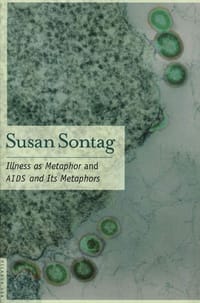In 1978 Susan Sontag wrote "Illness as Metaphor," a classic work described by "Newsweek" as "one of the most liberating books of its time." A cancer patient herself when she was writing the book, Sontag shows how the metaphors and myths surrounding certain illnesses, especially cancer, add greatly to the suffering of patients and often inhibit them from seeking proper treatment. By demystifying the fantasies surrounding cancer, Sontag shows cancer for what it is--just a disease. Cancer, she argues, is not a curse, not a punishment, certainly not an embarrassment and, it is highly curable, if good treatment is followed. Almost a decade later, with the outbreak of a new, stigmatized disease replete with mystifications and punitive metaphors, Sontag wrote a sequel to "Illness" "as Metaphor," extending the argument of the earlier book to the AIDS pandemic. These two essays now published together, "Illness" "as Metaphor "and "AIDS and Its Metaphors," have been translated into many languages and continue to have an enormous influence on the thinking of medical professionals and, above all, on the lives of many thousands of patients and caregivers.
桑塔格1933年生于美国纽约,毕业于芝加哥大学。1993年当选为美国文学艺术学院院士。她是当前美国声名卓著的“新知识分子”,和西蒙・彼伏娃、汉娜・阿伦特并称为西方当代最重要的女知识分子,被誉为“美国公众的良心”。2000年获美国国家图书奖、2001年获耶路撒冷国际文学奖,并获得2003年度德国图书大奖――德国书业和平奖。

